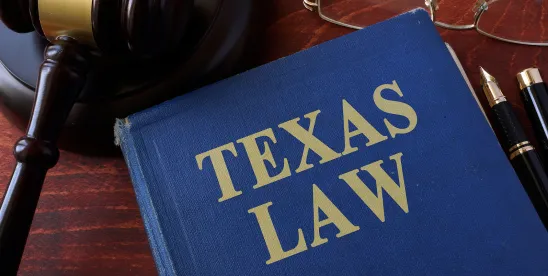Key Developments
- At the end of the legislative session, Texas Governor Greg Abbott signed House Bill 49, limiting tort actions relating to the beneficial use of produced water, a byproduct of oil and gas extraction.
- The Texas Commission on Environmental Quality (TCEQ) will draft rules governing the treatment and beneficial use of produced water.
- This summer, the Texas Supreme Court held that unless expressly provided otherwise through a legal agreement, produced water is oil and gas waste owned by the mineral operator, not the surface owner.
- At the federal level, the U.S. Environmental Protection Agency (EPA) announced that it will consider expanding opportunities for using produced water through rulemaking.
What is produced water, and who owns it?
Produced water surfaces with groundwater during drilling. While most of it is reinjected into wells, growing freshwater scarcity and advances in treatment technology have sparked interest in its reuse. Once properly treated, produced water can be safely discharged into state surface water.
Until recently, ownership of produced water in Texas was legally unclear. The Texas Supreme Court resolved the issue in Cactus Water Services v. COG Operating, ruling that produced water belongs to the mineral interest operator—unless a legal agreement states otherwise.1 This decision challenges the notion that produced water is simply groundwater brought to the surface. The Court found that “while produced water contains molecules of water, both from injected fluid and subsurface formations, the solution itself is waste—a horse of an entirely different color.”2 With this clarification, the Court clears a path to developing this valuable resource.
What is the regulatory framework for produced water reuse?
TECQ holds the sole authority to issue produced water discharge permits.3 Under H.B. 49, TCEQ will adopt rules and develop effluent standards concerning the treatment and beneficial use of produced water. The agency will begin the rulemaking process later this year.
While the Railroad Commission of Texas (RRC) holds regulatory oversight over oil and gas waste generally,4 S.B. 1145 consolidates regulatory authority over produced water to TCEQ. The Agency will develop permits for the discharge and land application of produced water, including water quality standards. As a result of TCEQ’s expanded authority, businesses can expect a streamlined permitting process.
On the federal level, activity is still on the horizon, in March 2025, EPA announced it would revise its effluent limitation guidelines for oil and gas extraction in accordance with President Trump’s Unleashing American Energy Executive Order.5 EPA Administrator Lee Zeldin announced that the Agency will consider expanding opportunities for using produced water, as technologies to treat and reuse water have become more effective and affordable.
What is the litigation risk of supplying produced water?
H.B. 49 limits tort liability for individuals and entities involved in the treatment, production, or transfer of produced water.6 This can include landowners, oil, treatment, and transportation companies. Specifically, the Bill states that a person who takes possession of fluid oil or gas waste, produces a treated waste from that waste, and puts it to beneficial use or transfers it to another person is not liable in tort for any consequence stemming from the use of that treated waste. Furthermore, an owner of the surface estate is not liable for personal injury, death, or property damage arising from exposure to fluid oil and gas waste or treated waste.
Exceptions for these protections are cases of gross negligence, regulatory non-compliance, or intentional, wrongful act or omission. The resulting rules will apply to causes of action after the effective date of the Bill, September 1, 2025.
1 See Cactus Water Servs., LLC v. COG Operating, LLC, 68 Tex. Sup. Ct. J. 1360 (2025)
2 Id. at 22.
3 16 Tex. Admin. Code § 3.30(b)(1)(B)(i), § 3.30(b)(2)(B)(i).
4 See R.R. Comm’n Tex., Produced Water Beneficial Reuse Framework for Pilot Study Authorization (2024)
5 EPA, EPA Will Revise Wastewater Regulations for Oil and Gas Extraction to Help Unleash American Energy (ELGs: Oil and Gas) (2025) https://www.epa.gov/newsreleases/epa-will-revise-wastewater-regulations-oil-and-gas-extraction-help-unleash-american
6 H. B. 49, 2025 Gen. Assem., 89th Sess. (Tex. 2025)
Brian Elizalde contributed to this article




 />i
/>i

